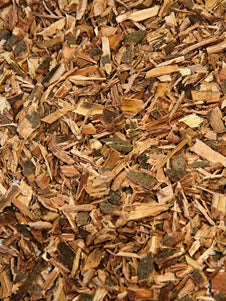
White Willow
10 reviewsWhite Willow
10 reviews- In stock, ready to ship
- Inventory on the way
Country of Origin may differ from what is shown above.
White willow bark (Salix alba) has been used for centuries to ease pain, reduce inflammation, and lower fevers. Known as the original source of salicin, it’s often chosen as a gentler, natural option for muscle aches, back pain, headaches, or menstrual cramps.
- Traditionally used for headaches, joint pain, muscle aches, and mild fever
- Contains natural salicin, the original herbal source behind modern aspirin
- Supports inflammation reduction without the harshness of synthetic NSAIDs
- Backed by modern studies for use in lower back pain and menstrual cramps
- Gentler on the stomach and suitable for longer-term support in healthy adults
Decoction: Simmer 1–2 tsp of dried bark in water for 10–15 minutes. Drink up to 2–3 times daily as needed.
Tincture: Take 2–4 mL up to three times daily for back pain, headaches, or cramps.
Capsules: Typical products contain 60–120 mg salicin daily. Follow dosage instructions for mild pain and inflammation.
Topical Use: Apply a strong decoction as a compress to sore joints or muscles. Can be used as part of DIY skin or acne preparations.
Pets: Occasionally used in veterinary care (dogs, horses) for joint stiffness. Do not use in cats. Only under vet supervision.
White willow is known as the herbal predecessor to aspirin, but with a gentler onset and longer-lasting effects. Many users turn to it for ongoing back pain, tension headaches, or joint discomfort. It’s also a common component in natural pain blends alongside turmeric, devil’s claw, or ginger. Occasionally used topically or in skincare for inflammation or blemishes.
Best avoided in children, pregnancy, or with anticoagulants. Always take with food. Store airtight to maintain potency.
- Actions: Analgesic, anti-inflammatory, antipyretic, astringent, bitter
- Systems: Musculoskeletal, immune, nervous, integumentary
- Energetics: Cooling, drying, bitter
- Common pairings: Turmeric, ginger, cramp bark, meadowsweet, boswellia
- Clinical tip: Salicin is slow-acting — allow 1–2 weeks for cumulative benefits in chronic pain
This product is not suitable for children under 16, during pregnancy, or alongside blood thinners or NSAIDs. Consult a healthcare professional for personalised advice before use.






